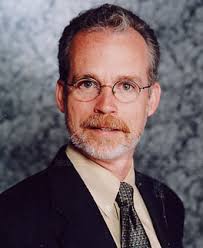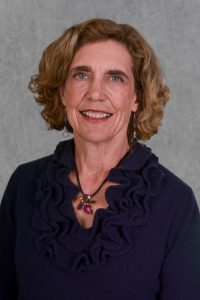The Department of Chemistry has invited three experts to talk about sensor science and technology for the 2017 Kilpatrick Lecture, to be held on Monday, April 10 at 2 p.m. in the Hermann Hall Ballroom. A reception, poster session, and presentation of student awards will follow.
This annual event is a celebration of Martin and Mary Kilpatrick, who were outstanding researchers and educators in the chemistry department from the 1940s to the early 1960s.
The Illinois Tech community is invited; please RSVP by Monday, April 3 to Lauren Shelby at 312.567.5030 or rsvpevents@iit.edu.
Sensors convert real-world data into readily accessible information that benefits society and improves quality of life through a cleaner environment, safer food, more efficient energy usage, and earlier diagnosis and more effective treatment of diseases. Sensor development is exciting, dynamic, and highly interdisciplinary, encompassing areas of chemistry, biology, physics, engineering, signal processing and electronics.
Three leaders in the field will talk about the latest developments:
 Eric V. Anslyn of the University of Texas at Austin will speak on “Mimicking the Senses of Taste and Smell” and provide an analysis of how organic chemistry can be used to mimic these senses through a union of designed receptors. The technique represents a marriage of supramolecular chemistry and pattern recognition protocols, resulting in a versatile artificial method that acts analogously to the mechanisms of taste and smell.
Eric V. Anslyn of the University of Texas at Austin will speak on “Mimicking the Senses of Taste and Smell” and provide an analysis of how organic chemistry can be used to mimic these senses through a union of designed receptors. The technique represents a marriage of supramolecular chemistry and pattern recognition protocols, resulting in a versatile artificial method that acts analogously to the mechanisms of taste and smell.
 Rashid Bashir of the University of Illinois at Urbana-Champaign will speak on “BioMEMS and Biomedical Nanotechnology: Opportunities and Prospects.” A pioneer in the field of bionanotechnology, he will present his work on detection of T cells for diagnostics of HIV AIDs; development of a CBC (Complete Blood Cell) analysis on a chip; electrical detection of multiplexed nucleic acid amplification reactions; and detection of epigenetic markers on DNA.
Rashid Bashir of the University of Illinois at Urbana-Champaign will speak on “BioMEMS and Biomedical Nanotechnology: Opportunities and Prospects.” A pioneer in the field of bionanotechnology, he will present his work on detection of T cells for diagnostics of HIV AIDs; development of a CBC (Complete Blood Cell) analysis on a chip; electrical detection of multiplexed nucleic acid amplification reactions; and detection of epigenetic markers on DNA.
 Frances S. Ligler, jointly from the University of North Carolina at Chapel Hill and North Carolina State University, will speak on “Keys to Biosensor Sensitivity: More than Affinity.” Drawing from biosensors developed in her lab over the last 30 years, she will provide examples of how manipulating elements increased (or decreased) sensitivity for target analytes detected in complex sample matrices.
Frances S. Ligler, jointly from the University of North Carolina at Chapel Hill and North Carolina State University, will speak on “Keys to Biosensor Sensitivity: More than Affinity.” Drawing from biosensors developed in her lab over the last 30 years, she will provide examples of how manipulating elements increased (or decreased) sensitivity for target analytes detected in complex sample matrices.
This year’s Kilpatrick Lecture is co-sponsored by the International Center for Sensor Science and Engineering.
